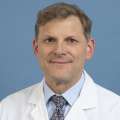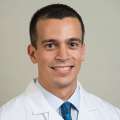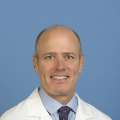Rehabilitation & Neural Plasticity
The Neurological Rehabilitation Program offers a 1-2 year fellowship for clinical and basic research training. Research opportunities include animal models of recovery and repair after stroke, vascular cognitive impairment, traumatic brain injury, and spinal cord injury (Drs. Carmichael and Hinman). Clinical studies (Drs. Cramer, Arac, and Dobkin) incorporate innovative strategies to improve motor control for the upper extremity and for gait, including telerehabilitation, robotics, brain-computer interfaces, noninvasive brain stimulation, vagus nerve stimulation, cell therapies, and drugs that act on learning and repair. We deploy motion capture, wearable sensors, and instrumented devices (in the lab, in the hospital, and in the home) to monitor real-world activities and to use as outcome measures in clinical trials.
We aim to develop clinical scientists who become leaders in this exciting field, so 50% time is for research. The fellow attends a weekly half-day neurorehabilitation clinic and gains experience in clinical care on the inpatient rehabilitation service at the California Rehabilitation Institute, in nearby Century City, under the guidance of neurologists and physiatrists specializing in stroke, traumatic brain injury, and spinal injury. California Rehabilitation Institute is a CARF-certified, 138-bed hospital, and is one of the largest inpatient rehabilitation facilities in the U.S.
Drs. Michael Su, Tracy Chang, Ahmet Arac, and Bruce Dobkin provide inpatient and outpatient rehabilitation clinical training.
Please arrange to send at least three letters of recommendation from your present program. Also, arrange to visit our program or call for a personal interview by e-mailing: [email protected].
Steven C. Cramer, M.D.
Professor of Neurology
UCLA Department of Neurology
710 Westwood Plaza, C239
Los Angeles, CA 90095
Fellowship Information
Fellowship Duration
1-2 years
Fellowship Salary
In keeping with departmental standards, including benefits
Fellowship Requirements
MD or DO, with completion of residency in neurology or physiatry by the start of fellowship. Off-cycle candidates are considered as well.
Fellowship Application Period
Accepted throughout the year
Typical Source of Funding
NIH and AHA grants, foundations






